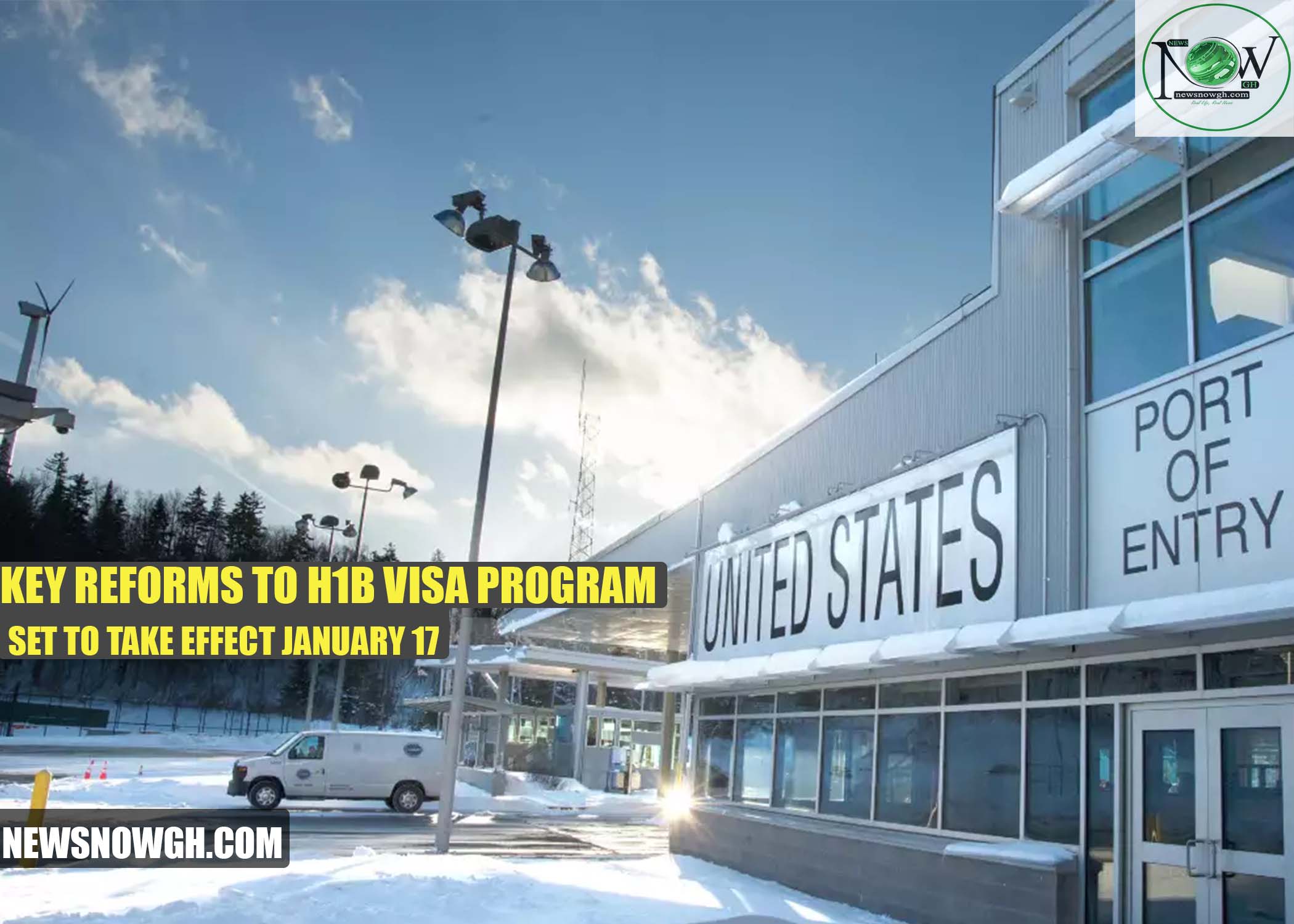Key Reforms to H-1B Visa Program Set to Take Effect January 17
The U.S. has finalized impactful changes to the H-1B visa program. These modifications, effective January 17, 2025, aim to simplify the application process for foreign workers. The updates will also provide greater clarity for employers and employees.
The U.S. Department of Homeland Security (DHS) has introduced these significant updates to enhance the H-1B visa program. This modernization effort focuses on improving efficiency for both foreign workers and their employers.
Key Highlights of the New H-1B Rules
One of the primary changes involves a refined definition of “specialty occupation.” This revised rule aims to clarify the specific skills and knowledge required for eligible positions. By doing so, it ensures that only qualified candidates can apply for the H-1B visa.
Additionally, the new rules emphasize the importance of degree relevance. The required degree field must directly relate to job duties. This means that general degrees, such as an MBA, may not automatically qualify for H-1B status.
DHS also plans to improve processing times for H-1B visa applications. These changes aim to reduce delays and provide quicker decisions for employers and employees alike.
Automatic Cap-Gap Extensions for F-1 Students
To support F-1 nonimmigrant students transitioning to H-1B status, the rule introduces automatic cap-gap extensions. This extension will cover the duration of F-1 status and employment authorization until April 1 of the relevant fiscal year. It ensures employment continuity for students awaiting approval of their H-1B petitions.
New Form I-129 for Nonimmigrant Workers
In line with these updates, the U.S. Citizenship and Immigration Services (USCIS) will release a revised Form I-129. This form will streamline the petition process for H-1B and other nonimmigrant workers, ensuring consistency with the new regulations set to take effect on January 17, 2025.
Expedited Processing and Policy Changes
The revised rule also alters the deference policy. It mandates that adjudicators defer to previous USCIS determinations for Form I-129 petitions involving the same parties and facts. Exceptions will only occur in cases of material errors or changes that affect eligibility.
Understanding the H-1B Program
The H-1B visa facilitates temporary employment for foreign workers in specialized U.S.-based roles. These positions require specialized knowledge and at least a bachelor’s degree. Key aspects of the program include:
- Annual Cap: The program allows for 65,000 visas annually, plus an additional 20,000 for candidates with advanced degrees from U.S. institutions.
- Specialized Knowledge: Workers must possess expertise directly relevant to their roles.
Impact on Employers and Foreign Workers
These updates aim to reduce processing delays and clarify eligibility requirements. Employers will benefit from clearer hiring guidelines for foreign talent. At the same time, foreign workers will enjoy stability through automatic cap-gap extensions.
Conclusion
The modernization of the H-1B program reflects DHS’s commitment to supporting skilled foreign workers. It also aims to ensure seamless transitions for nonimmigrant students. Employers and applicants should familiarize themselves with these changes and prepare for the implementation date of January 17, 2025.
By doing so, they can navigate the new landscape of the H-1B visa program effectively.
Follow us on Newsnowgh.com to stay updated on the latest information regarding work permits, visas, and visa-sponsored employment.


